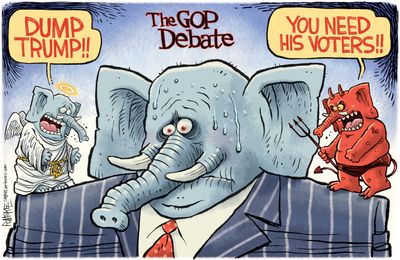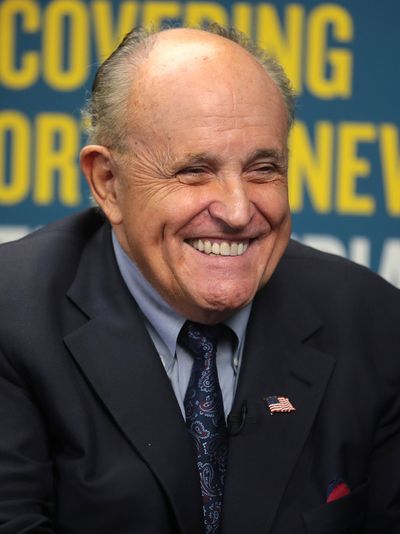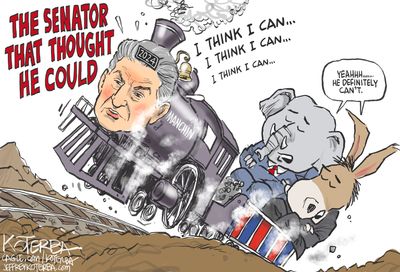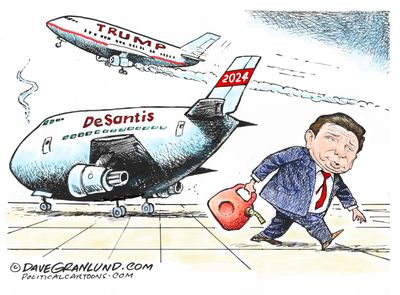Greg B. Smith and Yoav Gonen, The City
This article was originally published on Jun 30 6:32pm EDT by THE CITY
Last fall the city Department of Investigation released a damning report declaring that then-Mayor Bill de Blasio needed to reimburse the taxpayers $320,000 for the cost of bringing his NYPD detail along during his quixotic and ultimately failed quest for the White House.
At the time, the mayor questioned DOI’s findings, claimed there were “inaccuracies” in the report, and insisted he was simply following the advice of the NYPD. He also maintained he had “never received any contradictory guidance” on the use of the detail.
But a day before he announced his bid for the White House, he did receive explicit advice from the Conflicts of Interest Board (COIB) informing him in no uncertain terms that he must pay back the city for the use of the detail on the campaign trail.
The clarity of this instruction is revealed in a May 15, 2019 letter obtained by THE CITY via the Freedom of Information Law, signed by then-COIB Chairperson Richard Briffault to de Blasio’s City Hall counsel, Kapil Longani.
Briffault’s advice on how to avoid violating city conflict rules is unambiguous:
“The City may pay for only the salary and/or overtime of the NYPD personnel on such a campaign trip,” Briffault wrote. “All other costs associated with such personal campaign travel — including but not limited to airfare, rental cars, overnight accommodations, meals and other reasonable incidental expenses — must not be borne by the City. Rather these costs must be paid for or reimbursed by the Mayor’s campaign committee.”
In explaining his decision to de Blasio, Briffault noted federal campaign finance rules would require a federal candidate to repay a government for the use of governmental resources as part of a campaign. De Blasio is currently one of more than a dozen candidates running for Congress in the 10th Congressional District.
Three years after receiving COIB’s letter, the former mayor has yet to pay a dime.
De Blasio did not respond to a voice message left by THE CITY early Thursday asking about the straightforward declaration from COIB and his decision to disregard it. Neal Kwatra, a spokesperson for his congressional campaign, followed up later in an email to say he’d need more time to research the issue before answering.
‘Many Different Inputs’
De Blasio’s NYPD detail headaches began last October when then-DOI Commissioner Margaret Garnett released the results of a monthslong investigation into the mayor’s use of the detail for non-governmental activities — particularly during his five-month run for the presidency in 2019.
At the time, de Blasio fired back at Garnett, challenging her findings and insisting that his campaign did not need to pay for the detail because it was an acceptable expense. He acknowledged that the COIB had advised him to reimburse the taxpayers, but he then claimed that he’d received conflicting advice on this.
“There appear to be many different inputs, to some extent in conflict,” he told DOI investigators. “I don’t think anyone was able to resolve it squarely, and I mean I can’t say who resolved it because I don’t think anyone did.”
To the press he said “I have followed all guidance to the letter,” but he refused to release COIB’s written advice.
Instead he released a letter appealing the decision that he had sent to COIB shortly after DOI informed him that they needed to question him about the use of the detail. Since then, he has not divulged any further response from COIB to his appeal.
On Thursday, COIB spokesperson Chad Gholizadeh noted that the board is barred from revealing its discussions with city employees, but he noted: “Any of those communications that the Board might have had with a public servant could be shared by the public servant or former public servant.”
Last year, THE CITY first requested the COIB letter from de Blasio’s team, which did not respond, kicking the request over to Mayor Eric Adams as of his inauguration on Jan. 1. Late Wednesday, Adams’ office released the correspondence between de Blasio and COIB.
In a May 8, 2019, letter, de Blasio’s counsel, Longani, did not specify that the mayor intended to use the detail during a soon-to-be announced presidential bid, but kept the request vague:
“Under the assumption that the NYPD has determined that security is required, can the City pay all costs associated with providing NYPD-approved security for the Mayor on a political trip?”
Longani asked the same question about paying for NYPD coverage for de Blasio’s “immediate family members” as well.
On May 15, 2019, COIB Chair Briffault responded with a six-page missive detailing why de Blasio would have to pay for the detail on out-of-town political trips, writing that if the city paid for it, that would violate city ethics rules that prohibit public officials from using their position for their own “financial gain or other personal or private advantage.”
Briffault noted that the question about out-of-town use of a mayoral police detail for a political campaign was a new one the board had not previously considered. He cited a prior COIB advisory opinion from 2009 finding that the city could pay for an NYPD entourage to accompany an elected official to purely political events, but only if they were in or near the city. In that case, the costs would only be for travel to and from the destination.
But dragging the detail across the country would involve airfare and rental cars and hotel bills at a much higher cost to the taxpayers, Briffault noted.
“The costs of ancillary activities to put security in place at a distance from the city is not the same as ancillary security costs for local political activity and thus may require substantial public expenditure to support purely political activity,” he wrote.
The very next day de Blasio announced his run for the White House, standing in Lower Manhattan with New York Harbor and the Statue of Liberty in the background. He made no mention of COIB’s advice.
In July of that year THE CITY reported that de Blasio had run up more than $100,000 in costs for the cop detail in just two months on the road across Iowa, South Carolina, Louisiana and Texas. At the time, the NYPD declined to discuss the costs involved, but THE CITY was able to create an estimate based on federal regulations spelling out acceptable costs for travel, lodging, food and rental cars for government employees.
As The CITY documented last fall, besides the $320,000 he owes the city for the security detail, de Blasio also owes another $425,000 to a lobbyist law firm that represented him when his fundraising tactics were under investigation by the Manhattan district attorney and Manhattan U.S. attorney.
The former mayor’s disregard for COIB’s ethical advice wasn’t a one-time thing.
As THE CITY reported in December, COIB issued de Blasio a warning letter about his fundraising on behalf of his political nonprofit in July 2014 after the board learned that he had personally solicited $150,000 in donations from individuals or entities with business before the city.
Within seven months of receiving the letter, de Blasio made three additional solicitations to people or firms with business before the city, according to another warning letter that COIB issued to him in 2018.
The board said it let him off with a second warning letter, rather than recommending discipline that could have included a hefty fine, in part because the nonprofit had been disbanded in 2016.
THE CITY is an independent, nonprofit news outlet dedicated to hard-hitting reporting that serves the people of New York.




